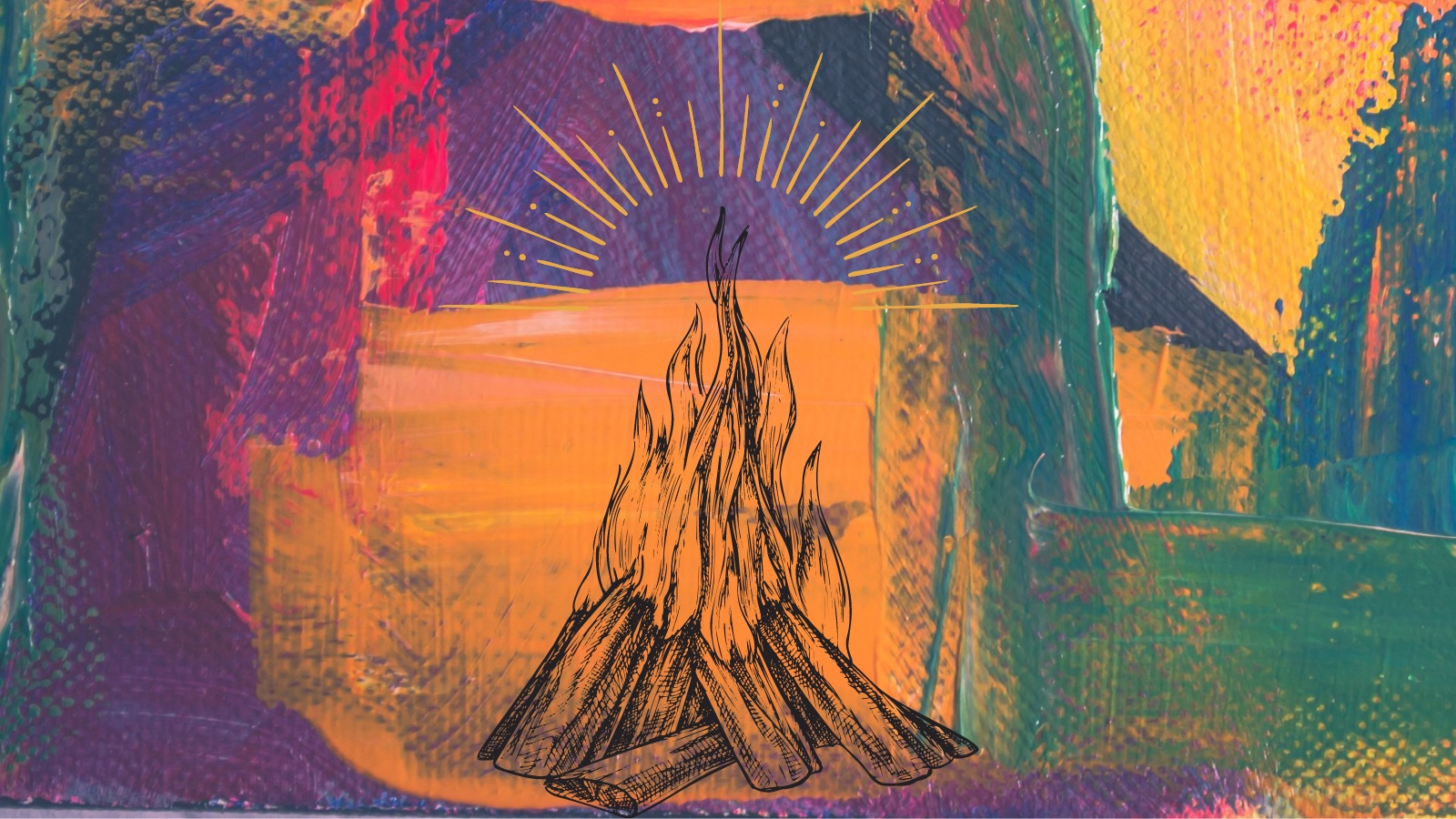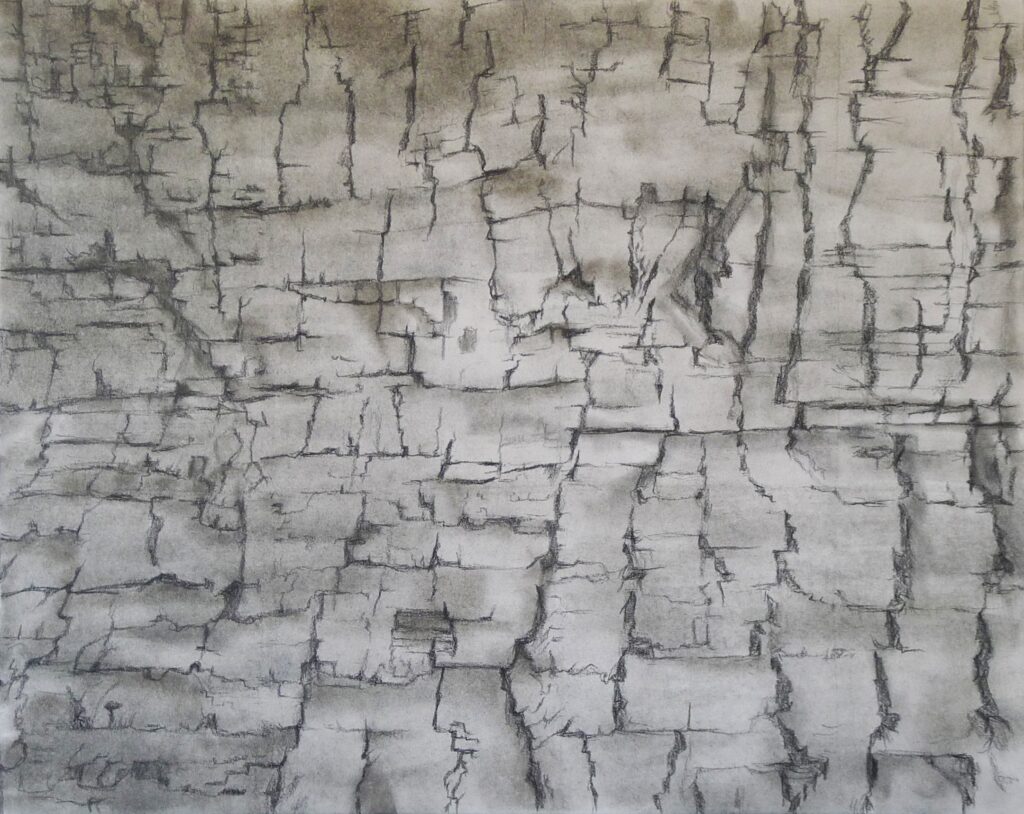The first reading I ever gave was at Basement Workshop

December 23, 2021
Editor’s Note: As the Asian American Writers’ Workshop celebrates its 30th anniversary, we invited current and former editors, writers, booksellers, community members, and workers to make new meaning from the Workshop’s archive. Together, they have awakened AAWW’s print anthologies and journals, returned to the physical spaces of the Workshop starting from our basement location on St. Mark’s Place, and given shape to the stories from within AAWW that circulate like rumors, drawing writers back again and again. In revisiting the Asian American Writers’ Workshop’s history, we hope for insight into the ever-changing landscape of Asian diasporic literature and politics and inspiration to guide us forward in our next 30 years. Read more in our AAWW at 30 notebook here.
The follow short essay by Kimiko Hahn was originally published in an appendix to AAWW’s first print anthology, Quiet Fire: A Historical Anthology of Asian American Poetry, edited by Juliana Chang and published in 1996.
Bringing alive the Asian American arts and poetry scene in NYC in the years just prior to AAWW’s founding, this essay was used as a jumping off point for our conversation between Kimiko Hahn, Jessica Hagedorn, and Kyle Dacuyan, which you can read here on The Margins as part of our AAWW at 30 notebook.
WORD
New York (1994)
The first reading I ever gave was at Basement Workshop, then several flights above Catherine Street. This was 1982. Jessica Hagedorn lined me up with a poet I’d never met and who has become over the years an important and trusted friend, Sekou Sundiata. That was Basement: performances, connections, waves of dissonance. And always “multicultural,” not for the fund, but for the fun: political and aesthetic.
Sekou’s voice was so steady it rocked my heart. His politics so quietly clear, my head fused. From confusion, fusion.
When Fay Chiang dropped the reins, and Teddy Yoshikami and Jessica moved on, the filmmakers Chris Choy and Renee Tajima asked if I’d continue Basement Workshop’s reading series. The first one I put together, at Cobi’s on Lafayette Street, coyly presented Jessica’s fiction (she was still best known for poetry then) and Diana Chang’s poetry in between an Asian American jazz spot and fashion show. Of course it was hot.
That moment in Manhattan was post-American Writer’s Congress (2,500 writers at a historic meeting in October, 1981) and pre-Artists Call (unprecedented rallying of artists against U.S. intervention in Central America); Bridge: Asian American Perspectives had been revived with a new focus thanks to the collective effort of, among others, Renee, Walter, David Low, Marsha Tajima, and myself. A couple of important organizations were hanging in (such as the Chinatown History Project and Asian American Arts Centre), although none sponsored readings. Word events ebbed. I was in between marriages, circulating the manuscript of my first full collection of poetry, and trying to cut loose all academic ties. To climb out of the dictionary:
4309 GEN, GON word
F1726
4313 KO get confused
F1729
To translate radical (the root part of a Chinese character) to radical, as in subversion. Public servants were just beginning to cut back the arts, an economic slash we would soon experience politically in the Reagan-Bush homophobic, anti-woman, anti-civil rights, give-back, union-busting, philistinian era. The beginning of the real estate boom, the beginning of homelessness as we live with it today. Funding for Asian American arts was cut back especially since there was no major institutional support; at the same time, Asian American artists were wooed by institutions savvy enough to hear “multicultural” as the coming buzz word. Basement knew the numbers. Any “minority” organization knew it.
The second year, as Word of Mouth, Quynh Thai of Film News Now Foundation (the parent organization) further professionalized the reading series. The Chatham Square Public Library in Chinatown continued co-sponsorship by hosting the programs in their third-floor loft, upgraded the sound system, and (after Manuel Ramos Otero boomed, “do it the way I tell you to of don’t do it at all.”) soundproofed the room. Magnificent Manhattan space. Free. Just walk in.
Favorite readings? Shawn Wong, Thought Music, Quincy Troupe, Diana Davenport, Ai, Jack Hirschman, Li-Young Lee, Patricia Jones—and the most Inspiring and Important, Hisaye Yamamoto who traveled by train from Los Angeles and finally met Yuri and Bill Kochiyama. The two women had heard of each other but never met back in the internment camps. We got money to bring folks in and we did.
I did Word for about three years. Trinh Minh-ha, in one of my last seasons, to a standing-room-only crown, read from her Woman Native Other, a classic before it hit the bookstores, libraries, and classrooms. Did she read this portion: “Power, as unveiled by numerous contemporary writings, has always inscribed itself in language. Speaking, writing, and discoursing are not mere acts of communication; they are above all acts of compulsion. Please follow me.” ?
Across the street at Asian CineVision, Jessica and Darryl Chin ran a series called “Talk’n’Cheap” where writers led discussions—David Henry Hwang read from M. Butterfly before it opened on Broadway. The Asian American Studies Association held its annual conference in New York in 1989 and the Asian American Arts Alliance was born. All this despite continued cutbacks.
With a second baby on the way, I left the project to poet Indran Amirthanayagam. At that point, the projects had to be scaled back, no surprise, due to “freezes and cuts.” For several of the last programs he was able to hook up with the Academy of American Poets Asian American tours. Economic constraints dictated the content of culture, business as usual.
Nowadays, a new organization, the Asian American Writers’ Workshop had thrust a group of young writers into leadership positions. Their program offers peer workshop, a “moveable” reading series, fellowships, a journal, and contests. And the Asian American Arts Alliance held a national conference in New York.
A new skin. Of course.



